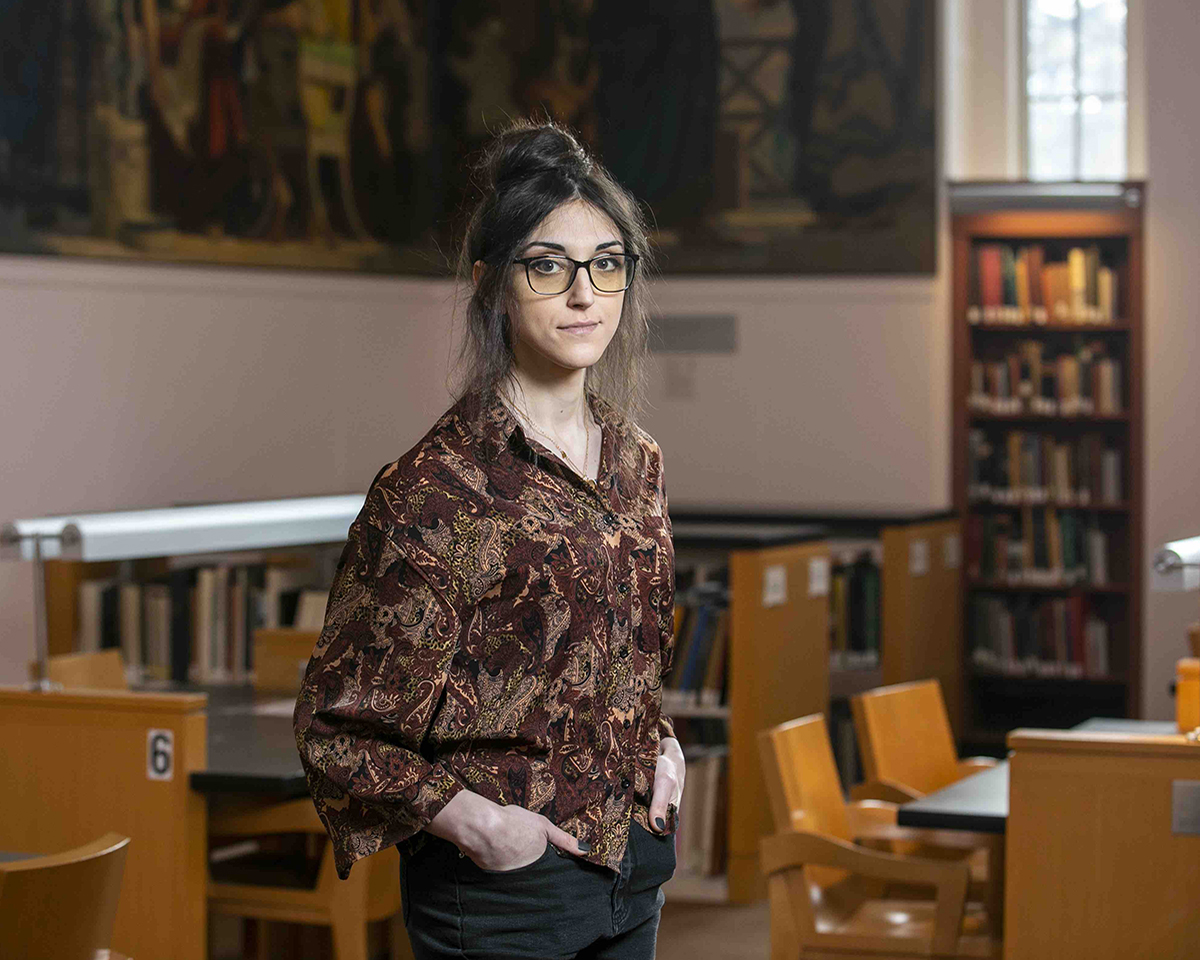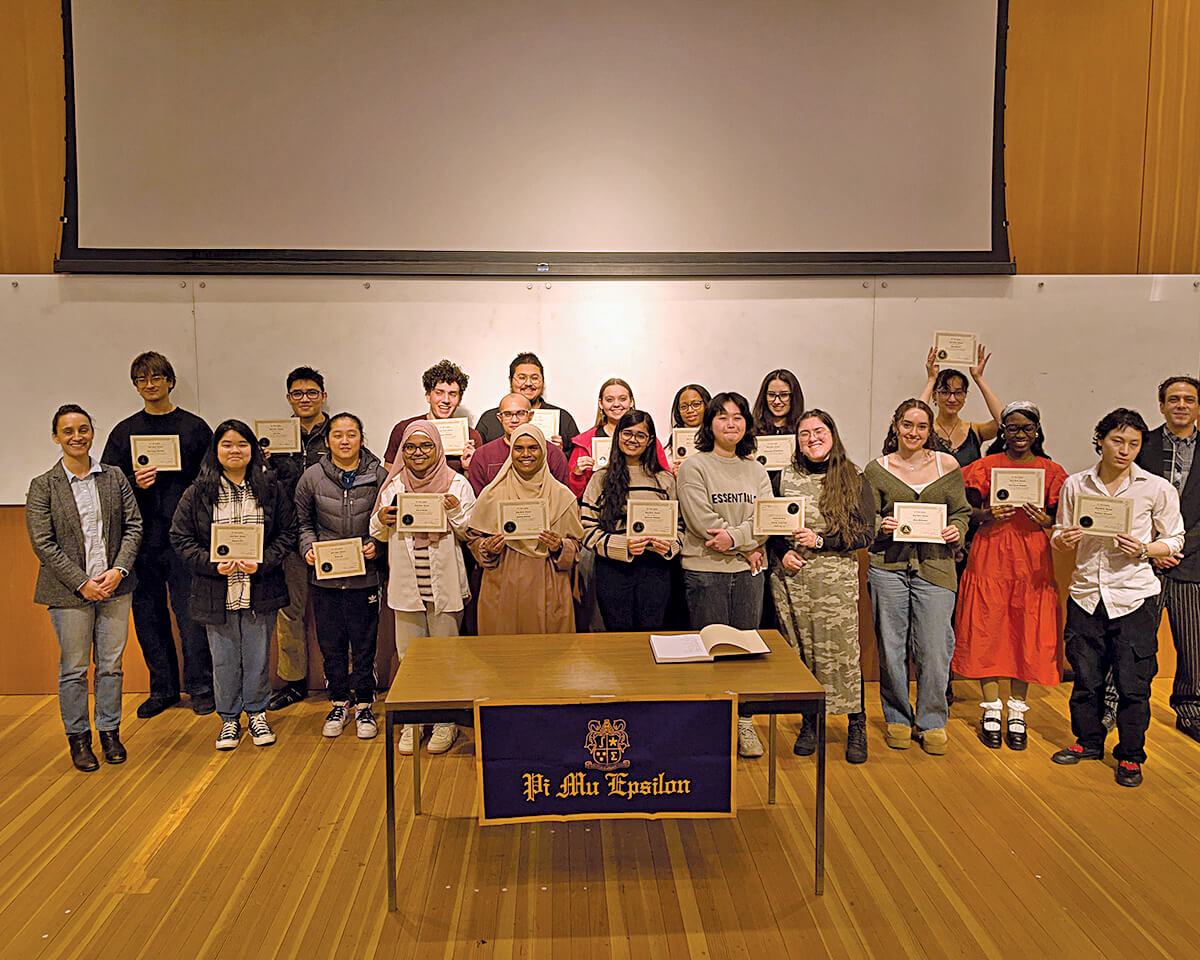What’s in a name? A lot.
Senior Lily Bello knows this, and so do clients at the Name Change Project of the Transgender Legal Defense & Education Fund (TLDEF), where she completed an internship this past fall.
“Finding work is very difficult when your documents don’t all match up,” says Bello. ”A legal name change cuts down on the discrimination you face.”
The reality of this—that names are a nexus for the legal, personal, and political—is what spurs people to contact the Name Change Project. And when they do, it is to divulge crucial personal information to someone they have never met, maybe through a translator.
As an intern, Bello was that person.
She conducted initial phone interviews with community members interested in TLDEF’s pro bono name change services. Her job was to find out whether interviewees—mostly based in New York or Pennsylvania, but some from elsewhere in the United States—were eligible for the program to connect them with a lawyer.
But during this process, she discussed sensitive topics, such as previous marriages and divorces. “I’ve had people start crying on the phone, so it’s a lot to process.”
For these interviews, Bello—an anthropology major and LGBTQ studies minor, preparing for graduate work in the anthropological study of transgender communities—drew on her Brooklyn College training, enacting what she sees as the “heart of anthropology”: communication with other people, the attempt to “get on their level and see what they’re seeing, to be able to relate to them easier.”
And when conversations got difficult, Bello shared her own story. It became a point of connection “that I am trans and that I have been through the name change process already.” Despite the challenging nature of these conversations, “people are incredibly appreciative of the free resource,” says Bello of the Name Change Project’s clients, all of whom have low incomes. “So definitely it feels rewarding.”
Professor of Political Science and Women’s and Gender Studies Paisley Currah connected Bello with the internship, designed to accompany the LGBTQ studies minor (but not restricted to students who choose that minor).
Currah, who studies transgender law and policy, has worked with TLDEF in the past, including recently as an expert witness. When a contact at the organization reached out to him about the Name Change Project internship, he recognized it as a valuable opportunity to match “competent, qualified, caring students with a population that’s really in need.”
Bello was the first Brooklyn College student to complete the internship. Her strong work—she has been asked to return in a paid capacity this semester—has paved the way for other Brooklyn College students in the future.
Currah is also looking to expand the LGBTQ community internship so that more students have opportunities to do meaningful and engaging work, at a variety of institutions. “Because I know people, I’ve been able to place [students] in good internships,” he says. “And now, I would like to scale it up.”



